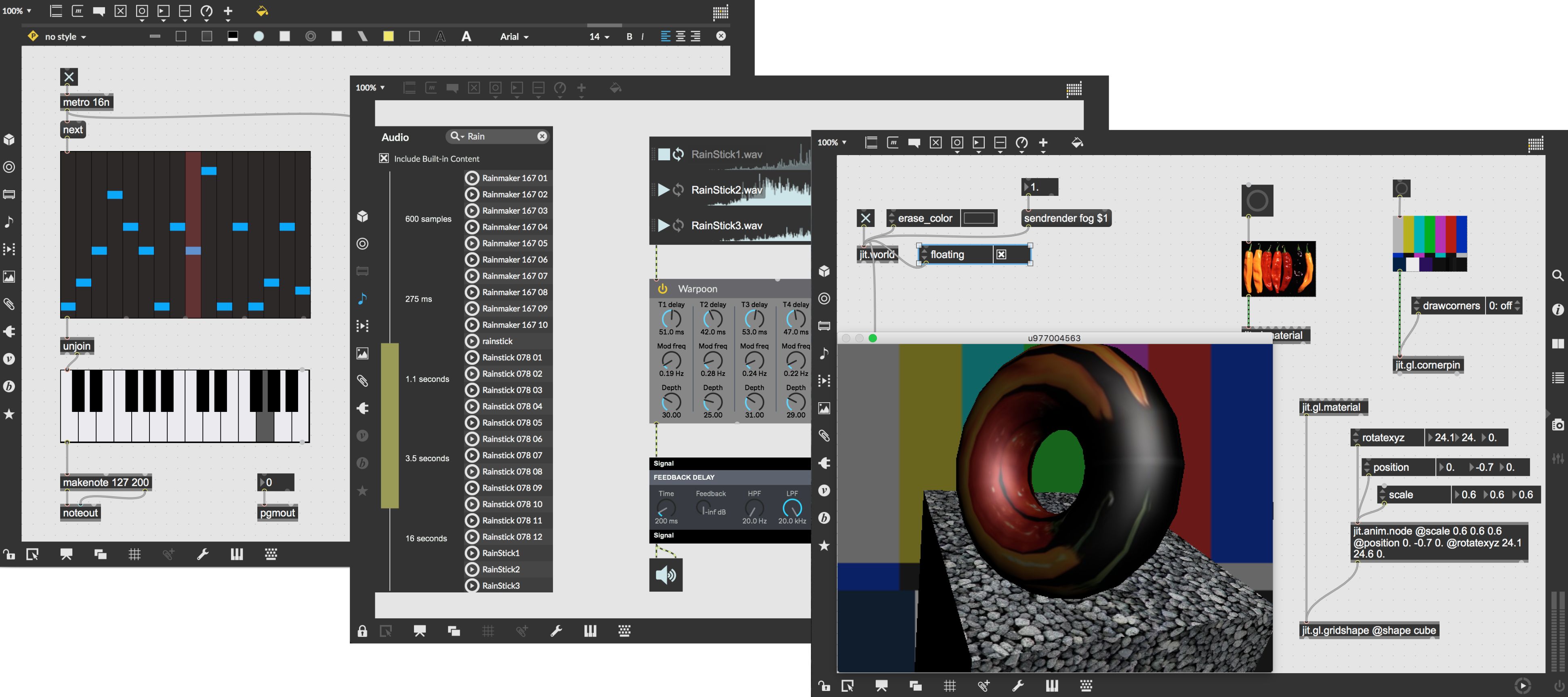

On Mac OS, Audio Unit plug-ins will be scanned and.
#MAX MSP VST WINDOWS#
On the Macintosh this is generally /Library/Audio/Plug-ins/VST/ and on windows this is the folder specified in the VSTPluginsPath string value under the registry key HKLM\Software\VST. When the Max application starts up, the system VST folder will be added to the max search path.

When is set to 0, any plug message received loads that plug-in to all instances. This can either be a symbolic plug-in name or an associated ID value as displayed by the printids message).įor mc.vst~, if the attribute is set to 1, sending a plug message will allow the user to load a VST for each instance individually. An optional second argument to the plug message can be used to specify a plug-in name within a shell plug-in (e.g., WaveShell). If a new plug-in is opened and found, the old plug-in (if any) is discarded and the new one loaded. The word plug followed by a symbol argument searches for plug-in with the specified name in the Max search path. In left inlet: The word plug with no arguments opens a standard open file dialog allowing you to choose a new VST or Audio Unit plug-in to host. Get -11 the plug-in's number of user preset files (Audio Unit only)
#MAX MSP VST PATCH#
Get -10 an integer value representing the initial delay of the plug-in in samples to allow you to automatically compensate for the plugin's latency in your patch Get -9 four integer values representing the left, top, right, and bottom coordinates of the desired rectangle of the plug-in UI edit window Get -8 the unique ID of the plug-in as an integer value Get -7 1 if the plug-in is a synth plug-in, 0 if it isn't Get -6 1 if the plug-in has its own edit window, 0 if it doesn't This indicates that the plug-in can be used in either a stereo or mono context Get -5 whether the plug-in's canMono flag is set. Get -4 the plug-in's number of parameters Get -3 the plug-in's number of programs (VST) or factory presets (Audio Unit) If a negative number argument is provided, the get message outputs a list with the first element specifying the number argument and the remaining elements specifying the following information: If a number argument is provided, and the number argument is between 1 and the number of parameters of the currently loaded plug-in (inclusive), the get message outputs the current parameter value (a float between 0 and 1) of the numbered parameter. If a symbol argument is provided, and the symbol corresponds to the name of a parameter, the get message outputs the current parameter value (a float between 0 and 1) of the named parameter. This is output from the fifth-from-right outlet of vst~ as a list with the query index (or plug-in info index) as the first element and the desired information as the second element. The word get, followed by a number or symbol argument, reports parameter values and plug-in information. To change instance values or attributes after the wrapper object has been created, use the setvalue, applyvalues, or replicatevalues messages. In this example, the first four instances are set as before, but the next six are created with a frequency argument of 100. For example, modifying our example above: mc.cycle~ 100 10 50 60 70 80. If you want to set a default initial value for all instances, simply type it as an argument before any typed-in attributes. If there are more instances than elements for the values attribute, those instances are instantiated with the default value. Note that values does not determine the actual instance count this can be done using the chans attribute. The first instance would be assigned a frequency of 50, the second a frequency of 60, the third 70, and the fourth 80. For example, typing mc.cycle~ 4 50 60 70 80 would assign an initial frequency to the cycle~ instances inside the wrapper. values sets the first (and only the first) initial argument for successive instances in the MC wrapper. The values attribute only applies to object creation time so it must be set via typed-in argument syntax.


 0 kommentar(er)
0 kommentar(er)
